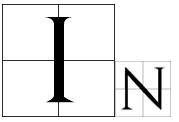The Appearance of a UFO in a Painting From 1350

The truth of those texts only comes down to the belief of a certain religion, however, nothing can beat visual justifications of strange things within history. The same goes for the fresco presented above that seems to offer a new perspective on the crucifixion of Jesus. This fresco is shown inside the Decani Monastery in Visoki, Serbia.
The Decani Monastery was built in 1350 at the order of King Stefan Decanski of Serbia, hence the name of the Monastery. The artist behind the fresco is unknown, although the painting was signed with the name “Serdge,” however, there are no historical records with such a name.
Such frescos are very common within Orthodox Monasteries and they usually depict important biblical moments with high attention to the detail portrayed in the painting to be exactly as it is described in the Bible. These frescos would also have to be approved based on the quality of detail, otherwise, the whole piece would be repainted.
This means that the UFO (unidentified flying object) depicted within the fresco could be from a lost biblical record that we are unaware of and in which we see another sort of divinity or even aliens for that matter.
Erich von Daniken is a writer and historian who supports the idea that extraterrestrial intelligence helped humanity evolve to the point where it would be able to self-develop. In a book written by him entitled Chariots of the Gods, he also states that many pieces of evidence, such as the fresco we are discussing, would not have a reason to lie, nor to rewrite history.

The actual description of the strange detail of the fresco by Daniken was that it represents an angel inside an alien spaceship overseeing the crucifixion. Other experts within the field support this statement as well as the value of the fresco in trying to prove the existence of extraterrestrial life.
Experts in Byzantine art define this detail as a human representation of the Sun and the Moon. The detail was added to show the crucifixion of Jesus had such a huge impact that even the celestial bodies could feel it and were impacted by it.
Although all the theories do have logic behind them we need to question everything because this fresco is one of a kind. If indeed the theory presented by Daniken is true why wasn’t this portrayed in other frescos? The same goes for the theory presented by religious arts experts.
It is true that the artist had a bit of freedom to portray the significance of whatever biblical event drawn with a unique style, but this does seem a bit opaque.


